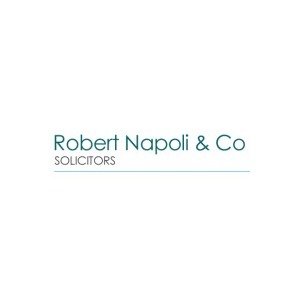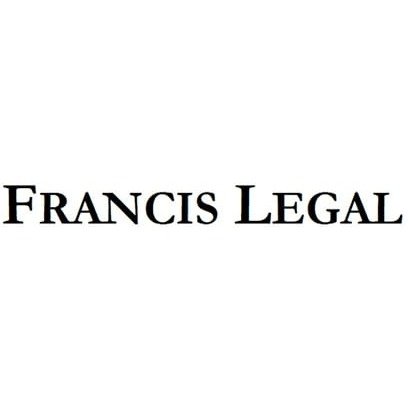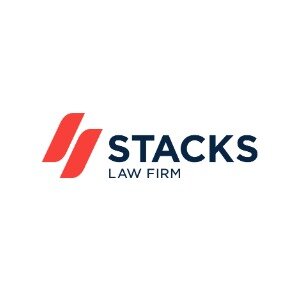Best Antitrust Litigation Lawyers in Hornsby
Share your needs with us, get contacted by law firms.
Free. Takes 2 min.
List of the best lawyers in Hornsby, Australia
About Antitrust Litigation Law in Hornsby, Australia
Antitrust litigation, often referred to as competition litigation in Australia, involves legal actions taken to address anti-competitive conduct such as cartel behavior, price-fixing, and misuse of market power. In Hornsby, as part of New South Wales, these matters are governed primarily by Commonwealth legislation but can be litigated in local courts. Antitrust laws are designed to promote healthy competition in the marketplace, benefiting both consumers and businesses. Cases may involve individuals, small businesses, or large corporations accused of engaging in practices that unfairly restrict competition.
Why You May Need a Lawyer
Antitrust litigation can be highly complex due to the technical nature of competition laws and the substantial penalties that may result. Situations where you may need a lawyer include:
- Accusations of price-fixing or market sharing agreements
- Concerns about unfair restrictions imposed by a competitor or supplier
- Being involved in mergers or acquisitions that might lessen competition
- Facing investigations by the Australian Competition and Consumer Commission (ACCC)
- Need for advice on compliance with antitrust regulations
- Pursuing damages for conduct by others that has harmed your business
A lawyer can help you understand your rights, represent you in court, negotiate with regulators, and ensure compliance with the law to avoid significant penalties.
Local Laws Overview
Antitrust or competition law in Hornsby is primarily governed by the Competition and Consumer Act 2010 (Cth) which applies nationally, including in Hornsby. This Act prohibits anti-competitive conduct such as cartel conduct, misuse of market power, and exclusive dealing. Local courts in Hornsby may hear antitrust matters, especially those relating to businesses operating in the area, but most major cases are handled in the Federal Court of Australia.
The Australian Competition and Consumer Commission (ACCC) is the primary regulatory body responsible for enforcing these laws. New South Wales state agencies may also become involved if the conduct contravenes state-based laws or causes harm to local consumers. It is important to note that even small or medium-sized businesses in Hornsby can become subject to antitrust litigation.
Frequently Asked Questions
What is antitrust litigation?
Antitrust litigation involves legal action taken against parties accused of engaging in conduct that restricts competition, such as price-fixing or abusing market power. These cases are brought under competition law in Australia.
Who enforces antitrust laws in Hornsby, Australia?
The Australian Competition and Consumer Commission (ACCC) is the main authority responsible for investigating and enforcing antitrust laws in Australia, including Hornsby.
What types of conduct are considered anti-competitive?
Anti-competitive conduct includes arrangements to fix prices, restrict output, divide markets, collusive tendering, and misuse of market power to harm competitors.
Can small businesses be affected by antitrust laws?
Yes, antitrust laws apply to businesses of all sizes. Small businesses can both be victims of anti-competitive conduct or be accused of breaching competition laws.
What penalties can result from antitrust litigation?
Penalties can include significant fines, damages claims, remedial orders, and in some cases, disqualification of company directors or criminal charges.
What should I do if I am approached about an illegal cartel?
You should seek legal advice immediately before responding. Participation in a cartel is a serious offense, and there may be options for immunity if you cooperate with authorities early.
How long does antitrust litigation take?
The timeline varies depending on the complexity of the case, but antitrust matters can take months or even years to resolve, especially if going to trial.
Do I have to go to court for an antitrust matter?
Not all cases go to court. Some can be resolved through administrative processes, settlements, or undertakings given to regulators such as the ACCC.
How can I ensure my business complies with antitrust laws?
Implement compliance training, review contracts and agreements regularly, and seek legal advice when entering into commercial arrangements where competition law may be a concern.
Where can I get free or low-cost legal advice for antitrust issues?
You may be able to access community legal centres, the Law Society of New South Wales referral services, or arrange an initial consultation with specialized competition law practitioners.
Additional Resources
If you are seeking further information or assistance regarding antitrust litigation in Hornsby, consider the following resources:
- Australian Competition and Consumer Commission (ACCC) - regulator and resource for understanding competition law
- Law Society of New South Wales - legal practitioner referral and advice services
- Community legal centres in New South Wales - free or low-cost legal help
- Federal Court of Australia - for information about cases and hearings involving competition law
- NSW Small Business Commissioner - support services for small businesses dealing with competition issues
Next Steps
If you believe you are involved in or are affected by anti-competitive conduct in Hornsby, it is crucial to act promptly. Here are recommended steps:
- Gather all relevant documentation and evidence regarding your concern or legal issue
- Contact a lawyer with expertise in antitrust or competition law for professional advice
- If you wish to make a complaint, consider reaching out to the ACCC or a local community legal centre
- Do not discuss your situation with competitors or opposing parties before consulting with a lawyer
- Stay informed about your rights and obligations under the Competition and Consumer Act 2010
Consulting an experienced legal professional can help clarify your options, protect your interests, and ensure compliance with the law.
Lawzana helps you find the best lawyers and law firms in Hornsby through a curated and pre-screened list of qualified legal professionals. Our platform offers rankings and detailed profiles of attorneys and law firms, allowing you to compare based on practice areas, including Antitrust Litigation, experience, and client feedback.
Each profile includes a description of the firm's areas of practice, client reviews, team members and partners, year of establishment, spoken languages, office locations, contact information, social media presence, and any published articles or resources. Most firms on our platform speak English and are experienced in both local and international legal matters.
Get a quote from top-rated law firms in Hornsby, Australia — quickly, securely, and without unnecessary hassle.
Disclaimer:
The information provided on this page is for general informational purposes only and does not constitute legal advice. While we strive to ensure the accuracy and relevance of the content, legal information may change over time, and interpretations of the law can vary. You should always consult with a qualified legal professional for advice specific to your situation.
We disclaim all liability for actions taken or not taken based on the content of this page. If you believe any information is incorrect or outdated, please contact us, and we will review and update it where appropriate.












